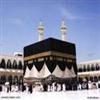
ARMY OF ISLAM ARRIVES IN THE AREA OF TABUK
The army of Islam arrived in the area of Tabuk in the beginning of the month of Sha'ban 9 A.H. However, no trace of the Roman army could be seen there. It appears that the commanders of the Roman army became aware of the numerical strength of the Muslim soldiery and their bravery and unparalleled self-sacrifices, a small specimen of which had already been seen by them from very close quarters in the Battle of Mu'tah. Hence, they considered it expedient to recall their army within the frontiers of their own territories. By doing so they practically wished to deny that they had mobilized forces against the Muslims, and wanted to give the impression that they had never thought of launching an attack, and that any such report was a mere gossip, and thus wished to prove their impartiality regarding the events which took place in Arabia.
At this juncture the Prophet assembled his esteemed officers, and acting on the established Islamic principle of consultation, asked for their views as to whether they should advance into the territory of the enemy or should return to Madina.
As a result of military consultations it was decided that the army of Islam which had suffered innumerable hardships while performing the journey to Tabuk should return to Madina to revive its strength. Furthermore, by performing this journey the Muslims had already achieved their major aim, which was to scatter the Roman army. The Romans were so much frightened and intimidated that for quite a long period they did not think of launching an attack and during that period, therefore, the security of Arabia from the northern side was ensured.
In order to safeguard the position of the Prophet and to make it clear that their own suggestions could be rejected or withdrawn, the members of the war consultative council added this sentence also: "If you have been ordered by the Almighty Allah to advance you should give orders, and we too shall follow you".[1] The Prophet said: "No order from Allah has been received and if any such order had been received from Him I would not at all have consulted you. According respect to the views of the consultative council, therefore, I have decided to return to Madina from this very point".
The rulers who inhabited the frontier areas of Syria and the Hijaz and wielded influence amongst their people were all Christians and it was possible that one day the Roman army might utilize these local powers and attack the Hijaz with their assistance. It was, therefore, necessary for the Prophet to conclude non-aggression treaties with them so that he might acquire better security.
He personally contacted those frontier rulers, who belonged to areas adjoining Tabuk, and concluded non-aggression treaties with them, subject to certain conditions. As regards areas lying at a greater distance from Tabuk he sent deputations to the rulers concerned so that better security could be ensured for the Muslims.
He also contacted the Rulers of Aylah, Azri'at and Jarba' and non-aggression pacts were concluded between the parties. Aylah is a coastal city situated on the coast of the Red Sea and is at some distance from Syria. Its ruler named Yuhanna (John) son of Rowbah came from his capital to Tabuk, wearing a golden cross round his neck. He presented a white mule to the Prophet and expressed his obedience to him. The Prophet appreciated his gesture and also gave him a present in return.
The said ruler decided to remain a Christian and agreed to pay three thousand Dinars per year as jizyah (tribute) and also to receive every Muslim who passed through the region of Aylah. A pact on the following lines was signed by the parties: "This is a non-aggression pact from the side of Allah and His Prophet, Muhammad for Yuhanna and the residents of Aylah. According to this pact all their means of transport whether by sea or by land and all the persons belonging to Syria, Yemen and the islands, who may be with them, shall be under the protection of Allah and His Prophet. However, if anyone of them violates the rule his wealth shall not save him from punishment. All sea routes and land routes are open for them and they are entitled to frequent them''.[2]
This pact shows that if a nation co-operated with the Muslims in a peaceful manner it was provided all the facilities, and its security was also guaranteed by them.
The Prophet also concluded pacts with the frontiers-men like the people of Azri'at and Jarba' whose lands had great strategic importance, and thus ensured the safety of the Islamic territories from the northern side.
notes:------------------------------------------
1 Seerah-i Halabi, vol. III, page 161.
2 Seerah-i Ibn Hisham, vol. II, page 526; Seerah-i Halabi, vol. III, page 160 and Biharul Anwar, vol. XXI, page 160.
-------------------------------------------------
Taken From : The Message by Ayatullah Ja'far Subhani
source : sibtayn













